Common misconceptions about introversion and extroversion in life.
Introversion and extroversion have long been familiar concepts in our lives, easily encountered in everyday situations. They've even become common phrases used when people want to comment on someone or introduce themselves.
For example, when someone speaks very naturally and engagingly in front of a crowd, someone might comment, "He's definitely an extrovert." Or when someone introduces themselves as an introvert, it's enough to suggest that their personality is somewhat shy and easily embarrassed.
However, despite their widespread use, not everyone truly possesses a thorough understanding of these concepts. Instead, we often use them based on superficial, generalized interpretations. This understanding gradually leads us to form prejudices about who we perceive as introverted and extroverted, diminishing the value of these concepts in understanding and empathizing with people.
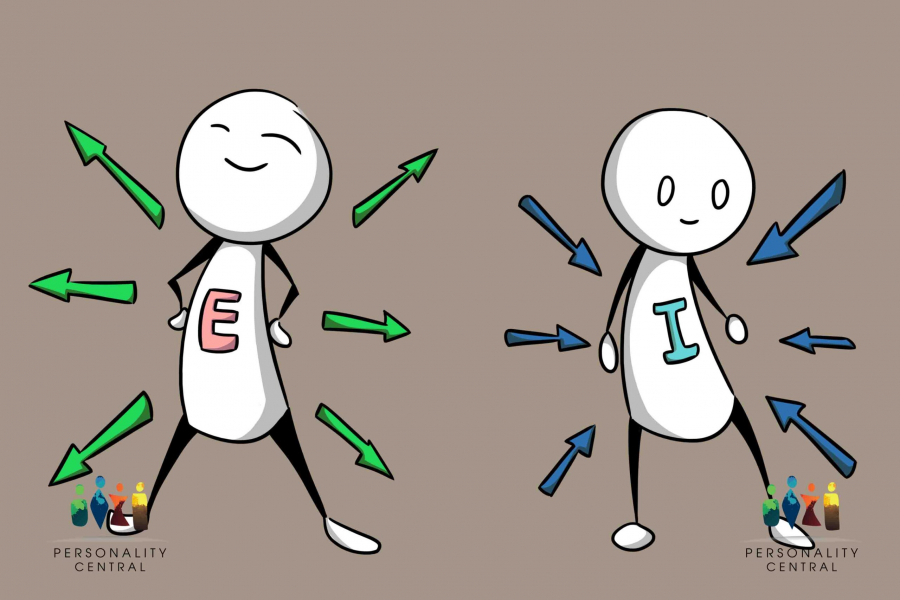
Photo: Personality Central
Common misconceptions about extroversion that we often encounter:
- Always enjoys going out and interacting with crowds, prefers communal living.
- They like to express themselves verbally and tend to talk a lot.
- Very easy to talk to, enjoys making new friends.
- They often make decisions based on fleeting trends without careful consideration.
- Often uses body language or actions to help express thoughts.
- People who are isolated from the outside world for too long often experience stress, even depression and psychological disorders.
And some common stereotypes about introversion that we often encounter are:
- They are cautious when making decisions, often exploring options and thinking things through before making a decision.
- When people are sad or hurt, they often seek out quiet spaces where they can be alone.
- I prefer having private conversations when it's just the two of us.
- They usually think for themselves and make decisions independently, rarely asking for others' opinions.
- They think a lot but speak little, are afraid to express their own opinions, and only speak up when asked.
- Not afraid of isolation, even actively isolating themselves, preferring an introverted lifestyle.
In reality, no individual will always behave in an extreme way, following only one extreme. Introverts can still enjoy socializing, and extroverts can still prefer solitude. These tendencies vary from person to person, depending on the circumstances or stage of life. Believing in these common assumptions easily leads to prejudice, causing us to judge others superficially and one-sidedly, based only on outward appearances, without describing the underlying reasons for their actions and behaviors.
In other words, these preconceptions don't help us uncover the essence and underlying principles of each personality type, preventing us from better understanding the thinking of those around us. On the contrary, judging personality based solely on superficial appearances can easily lead to misunderstandings and errors in how we approach and interact with others.
Redefining Extroversion and Introversion
Swiss psychiatrist and psychoanalyst Carl G. Jung wrote "Psychological Types" in 1921, introducing one of the most groundbreaking concepts in his study of human personality: the concepts of extraversion and introversion. Let's explore the nature of these concepts so we can apply them accurately to life.
Introversion
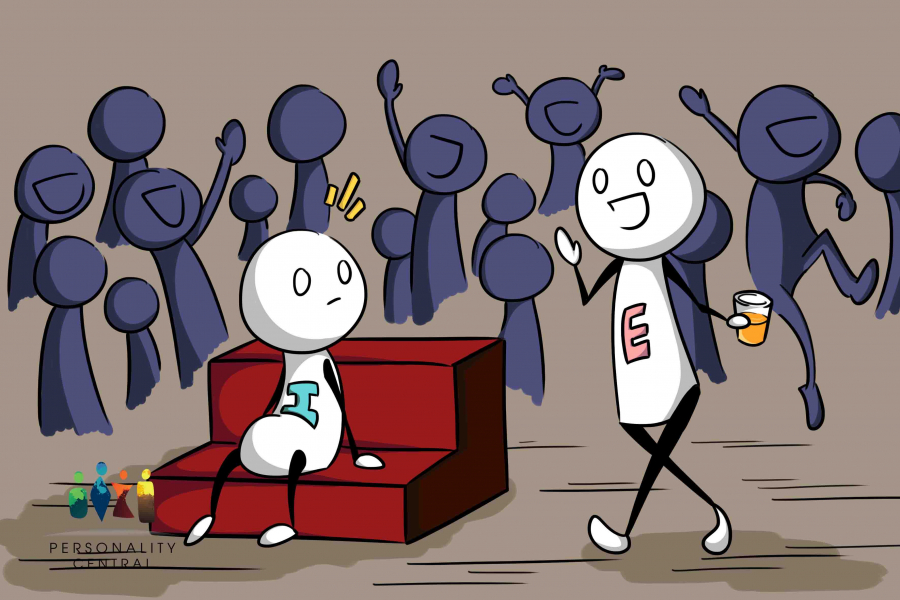
Introverts tend to be wary of external influences in order to protect their subjective world. (Image: Personality Central)
Introverted individuals define the objective world based on subjective criteria. Simultaneously, their thinking is also guided by these subjective criteria.
Introversion is the process of generating energy from within, through the introvert's self-orientation regarding the power that governs subjective aspects of life, such as personal thoughts, emotions, and experiences.The more introverts maintain and affirm these subjective traits, the more confident and comfortable they will feel.
This doesn't mean that introverts are always in a state of introspection; instead, they may express their subjective views of the outside world. They may interpret objective things from a subjective perspective, such as discussing personal feelings, experiences, and personal standards.
A subjective perspective is a manifestation of a subjective reality formed within the thoughts of introverted individuals; it is not an objective reality at all.For them, every object must be recreated in the inner world.
Because introverts' energy is detached from external things, they tend to be reserved and unpredictable when approaching new people. To explain this, we should understand the "distance" behavior of introverts. They often create distance between themselves and the outside world to maintain their inner world, and this is often misunderstood as shyness or fear, but that's not necessarily the case. It's simply their way of protecting their inner world by being wary of external influences.
In short, the essence of introverts is that they are concerned with protecting themselves from the influence of external factors.
Extraversion
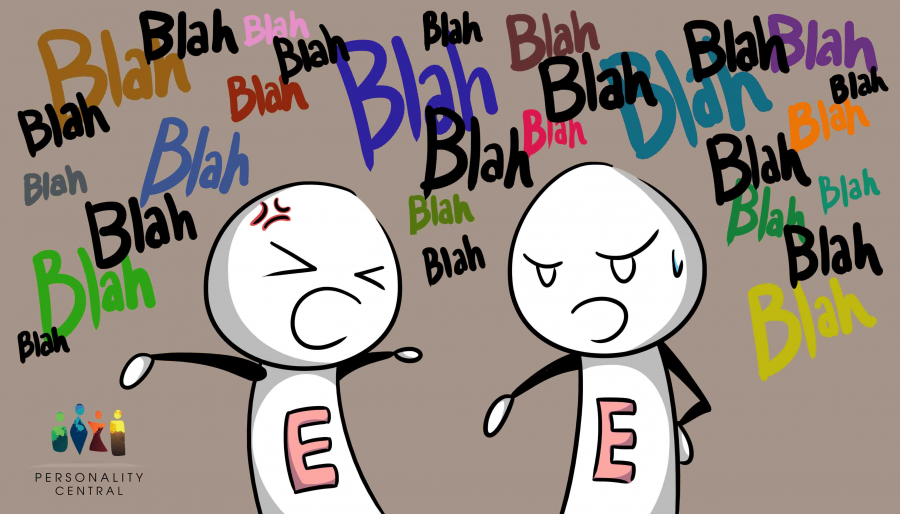
Extroverts tend to want to influence and impact objective subjects. (Image: Personality Central)
Extroverted individuals define their inner world based on objective criteria and are guided by standards, acting upon objective events, phenomena, and information.
However, we need to note that even the most seemingly objective perspectives contain a certain degree of subjectivity. Because an individual's perspective is not comprehensive, completely grasping the objective world is almost impossible. Here, we can understand this objectivity as being based on the subjective perception limitations of extroverts, who always try to deny their own subjective elements when receiving information about a subject, but in reality, those subjective elements will still influence their perspective to some extent.
Extroversion is the process of generating energy through external objective factors; objective standards are most important to extroverts. Because they are always guided by objective criteria, extroverts tend to change themselves to adapt to their surroundings. The more adaptable/influencing they are to their surroundings, the more confident, comfortable, and energetic they feel.
Extroverts tend to think and act in a way that is direct and responsive to the current external situation.
Extroverts don't necessarily need to have excellent social skills, as this depends on individual abilities. However, the inability to adapt to/respond to external circumstances over time can lead to a lack of self-confidence and a loss of motivation for extroverts.
Even neglecting one's inner world can cause immense suffering for extroverts. They may adapt to external circumstances, but if their subjective world—such as personal emotions and opinions—is suppressed and left unexpressed, they can easily fall into a state of imbalance. At such times, they may become more withdrawn and less expressive as a way to redefine themselves.
Furthermore, extroverts are always influenced by the objective world, so their thinking can fall into two categories: either harmonizing with the environment or resisting an unsuitable environment. However, comparatively, in situations where they are not in harmony with the external environment, introverts will adopt a defensive or evasive stance, while extroverts will proactively resist the outside world in an offensive posture.
In summary, we can conclude that the essence of extroverted people is that they are concerned with how the subject can influence the object.
What can extroverts or introverts do to conserve/recharge their energy?
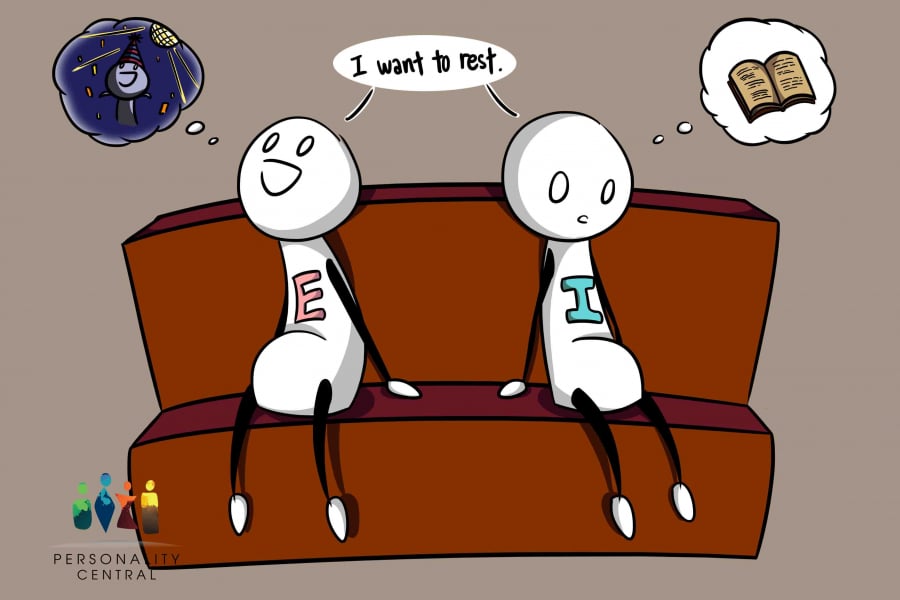
Introverts and extroverts have their own ways of conserving/recharging their energy. (Image: Personality Central)
As mentioned, the personintrovertIntroverts tend to protect their subjective world, trying to avoid external influences. This subjective world includes elements such as personal emotions, personal attachments, personal experiences, and personal opinions or perspectives. Being able to maintain control over these personal elements makes introverts feel confident, secure, and comfortable.
On the other hand, introverts may feel drained when faced with environments that are constantly changing and challenge their subjective perspectives. For example, they may feel that what is happening in their surroundings is outside their experience, or that others are influencing them to change their preconceived notions.
Based on these characteristics, introverts can conserve/recharge their energy by seeking out environments, relationships, and things that already share a common emotional harmony, perspective, viewpoint, and experience with them, and avoiding environments that are too different or contradictory. Being in an environment with shared values makes introverts feel protected, their personal values are more firmly established, and this helps them feel confident, comfortable, and less vigilant. This is also how introverts can conserve/recharge their energy.

PeopleextrovertConversely, extroverts have a need to influence/manipulate objective objects. They are concerned with what they can do to affect the object. Creating as wide an influence as possible on the environment makes extroverts feel confident that they are in control of their external environment.
The inability to maintain an impact on one's external environment can leave extroverts feeling out of control, stressed, or even fearful because they cannot define themselves, their thoughts, or their actions.
To avoid falling into that trap, extroverts should seek out environments where they feel comfortable debating, persuading, and influencing others. They always need environments with constant change and new elements to satisfy their need to understand the objective world. This is how extroverts are energized.

In the current situation where the Covid-19 pandemic is directly impacting our lives, connecting with relationships and environments that suit us is very limited. At this time, introverts can choose activities that protect and enrich their inner world, such as reading, translating, writing, painting, etc., as long as they feel connected to and familiar with these activities; or they can try to maintain their existing habits to adapt to the new situation.
As for extroverts, who always need stimulation from an external environment, when forced to stay at home, they can choose activities such as: joining online groups to debate and interact; searching for information and acquiring new knowledge; or starting a new activity that requires them to learn, experiment, and have continuous interaction.
Additional information
If you want to learn more about "introversion," "extroversion," or MBTI, you can visit this page.MBTI and MeUThis is one of the groups that frequently posts and shares useful, diverse, and easy-to-understand information about personality types as seen in everyday life.
Source: Psychological Types - Carl G. Jung

 VI
VI EN
EN



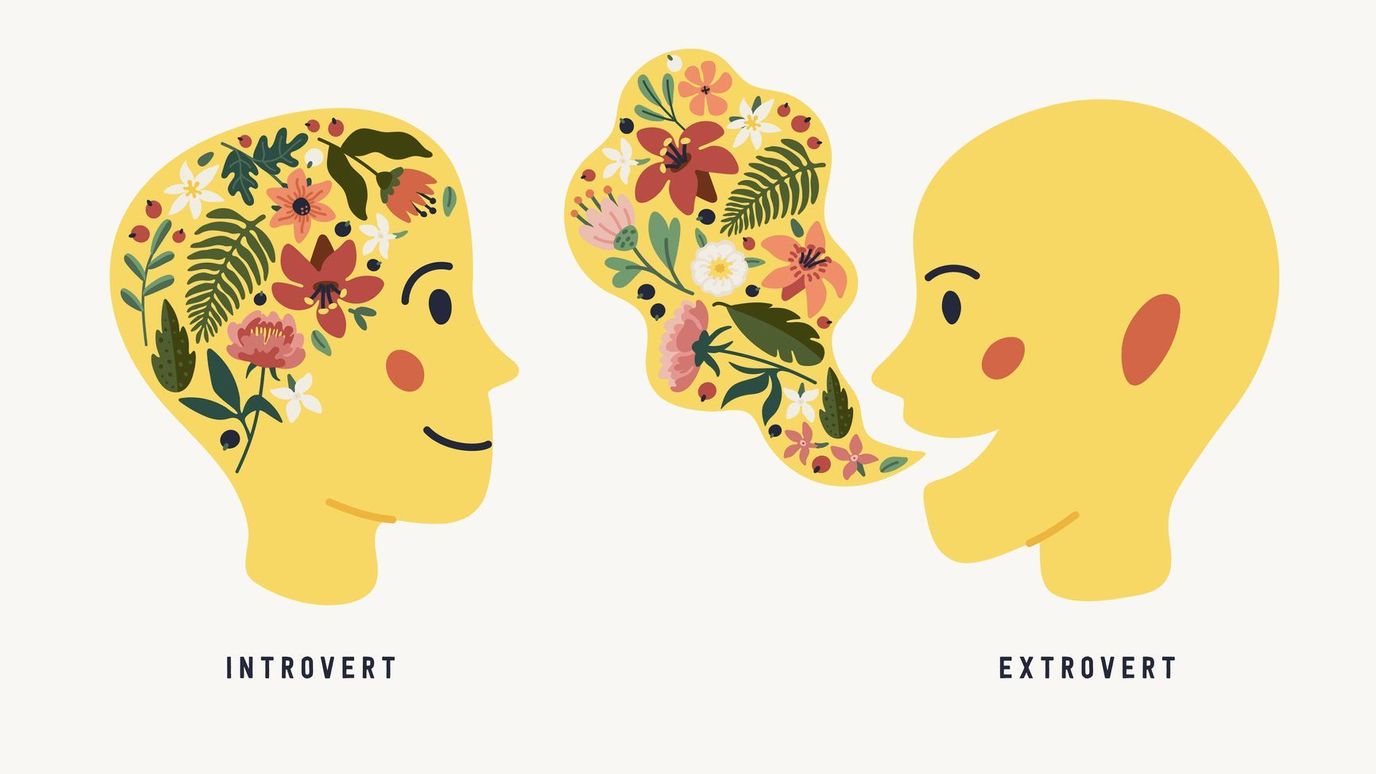
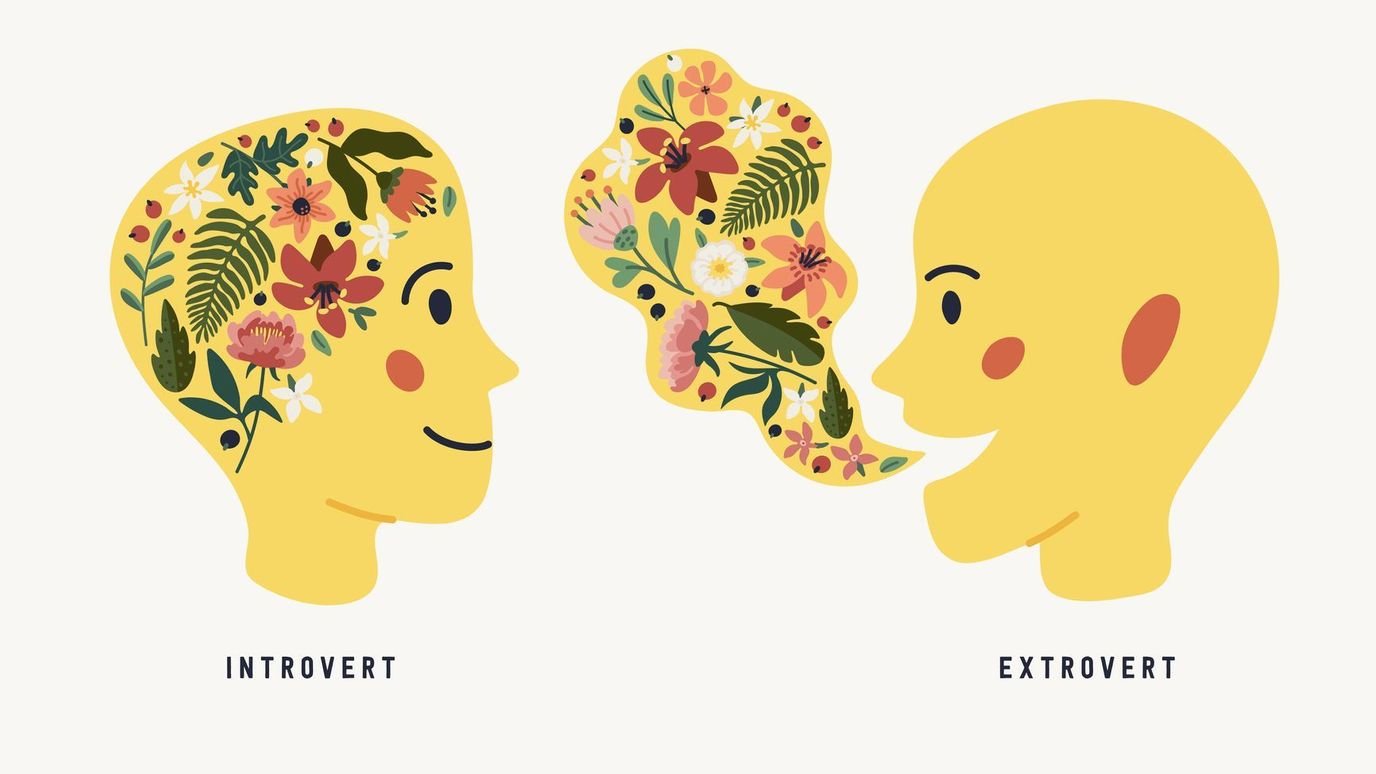
















.JPG.JPG)

.jpg.jpg)





.jpg.jpg)






